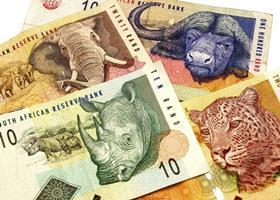
In the view of the South African business sector, South Africa’s governing party, the African National Congress (ANC), elected the right person as president in the shape of Cyril Ramaphosa - but the election also outlined the deep divisions within the party which could hamper the new leader in his bid to turn the country around.
The election process took three days to complete, with opposing factions among the 5,000 delegates going toe-to-toe on the conference floor. This followed a year-long campaign across the country that resulted in court cases nullifying the voting rights of certain ANC branches in three provinces.
With Ramaphosa narrowly defeating Nskosana Dlamini-Zuma, ex-wife of much-vilified president Jacob Zuma, the South African rand strengthened by 6 per cent against major international currencies - a clear signals that, in the world of international business at least, Ramaphosa is seen as a good choice. In general, the South African fruit sector agrees, although they expect the new president to face major challenges.
South African television audiences watched as a stone-faced Jacob Zuma showed no emotion when Ramaphosa’s victory, by only 179 votes, was announced.
He had hoped that Mrs Zuma would win, a victory that would have protected him from prosecution for corruption, which most South Africans desire.
The main problem is the fact that the election of the other five members of the ANC executive is such a mixed bag between Ramaphosa and Zuma supporters - in one case including one executive member who has been linked to state capture and the Gupta family - that it will make it very difficult for the new president to move forward decisively.
Ramaphosa, during his campaign, strongly indicated that he would act against the corruption which has been dominating the Zuma presidency. Now observers say he will have to act if he wants to turn the country around and have a chance of winning the next election.
While he has replaced Zuma as ANC president, the current incumbent's term as president of the country will actually run until the next election in 2019.
When Zuma became ANC President in 2008, he moved swiftly to recall Thabo Mbeki two years before the general election. Will Ramaphosa be able to do the same with a leadership which is deeply divided?
If nothing is done and Zuma is allowed to carry on the way he has been doing, the ANC will find it very hard to gain a majority in the next general election. The regional elections in 2016 saw major losses for the party, confirming a trend that voters in the country are increasingly turning their backs on the ANC.
Leaders in the country's fruit industry have welcomed the election of Ramaphosa and have said the industry would benefit from greater stability.
While a stronger rand will mean lower returns, it will also help curtail costs which will be welcomed by all. They point out that the fruit sector is a major contributor to the economy which has declined into junk status. Further stimulation of the sector would assist with job and wealth creation which will support an economic revival.
Meanwhile, it is clear that Jacob Zuma’s troubles are only now beginning. It is unlikely that Ramaphosa will do much to halt a string of court orders against him - In fact, Ramaphosa is expected to insist that these processes go ahead.
He will be hoping that his followers will dominate the 80 member strong National Executive Committee which will be elected today. This body will determine just how much power Ramaphosa will have to move decisively.
The fun and games in South African politics will therefore continue for some time yet.



